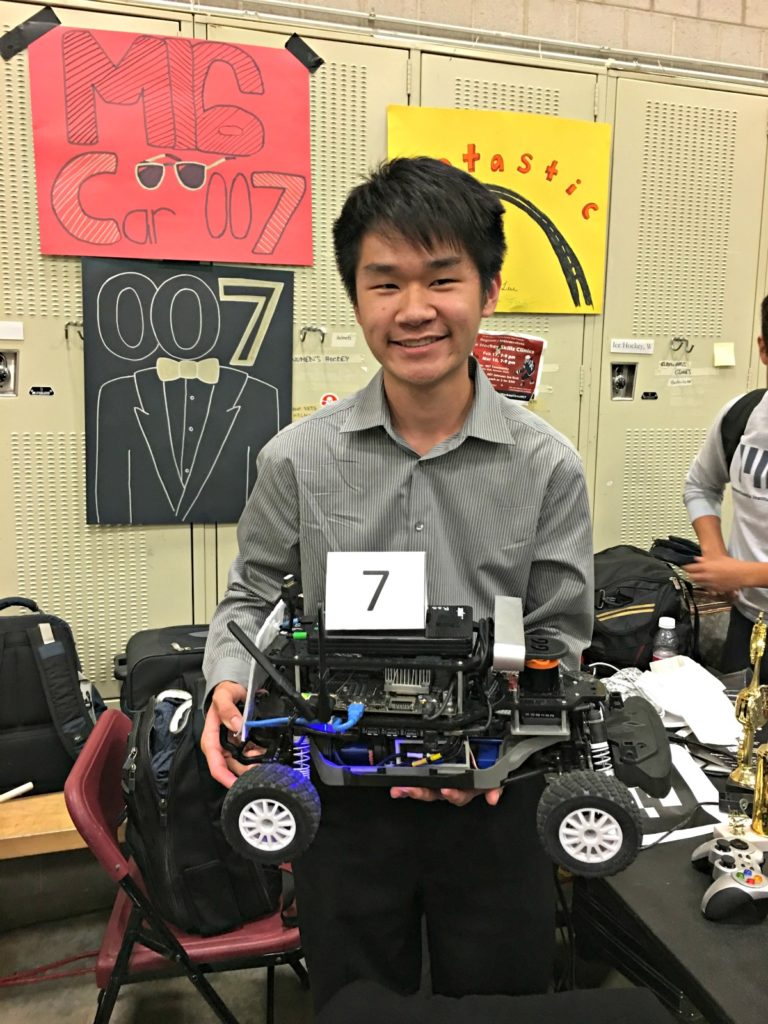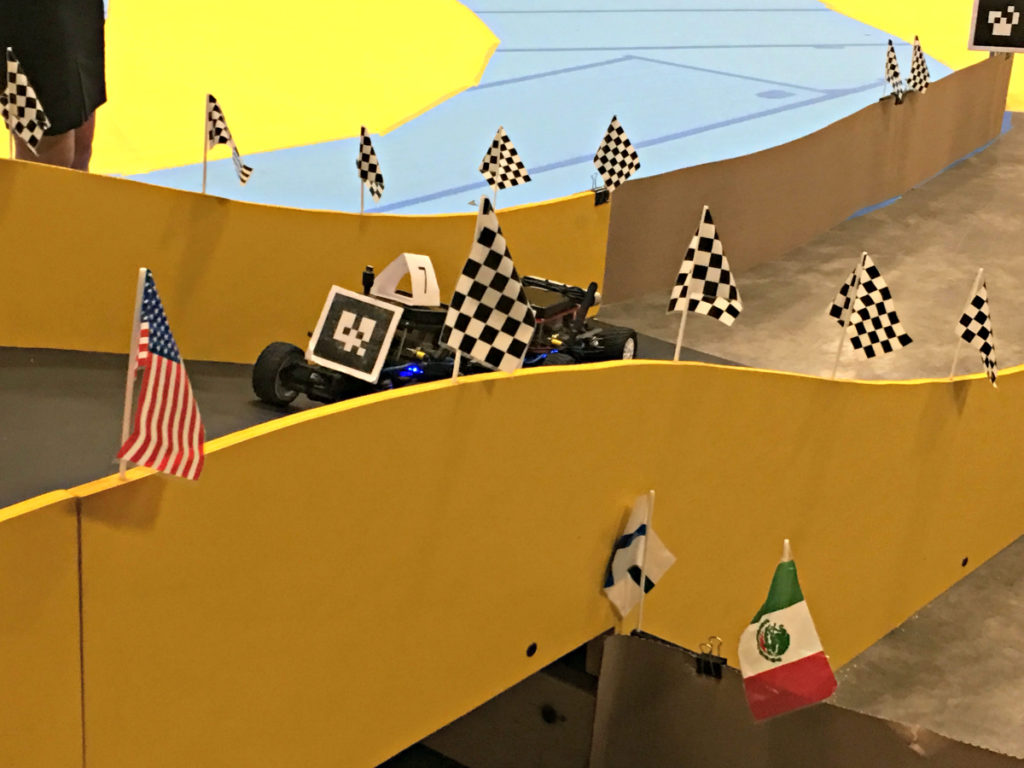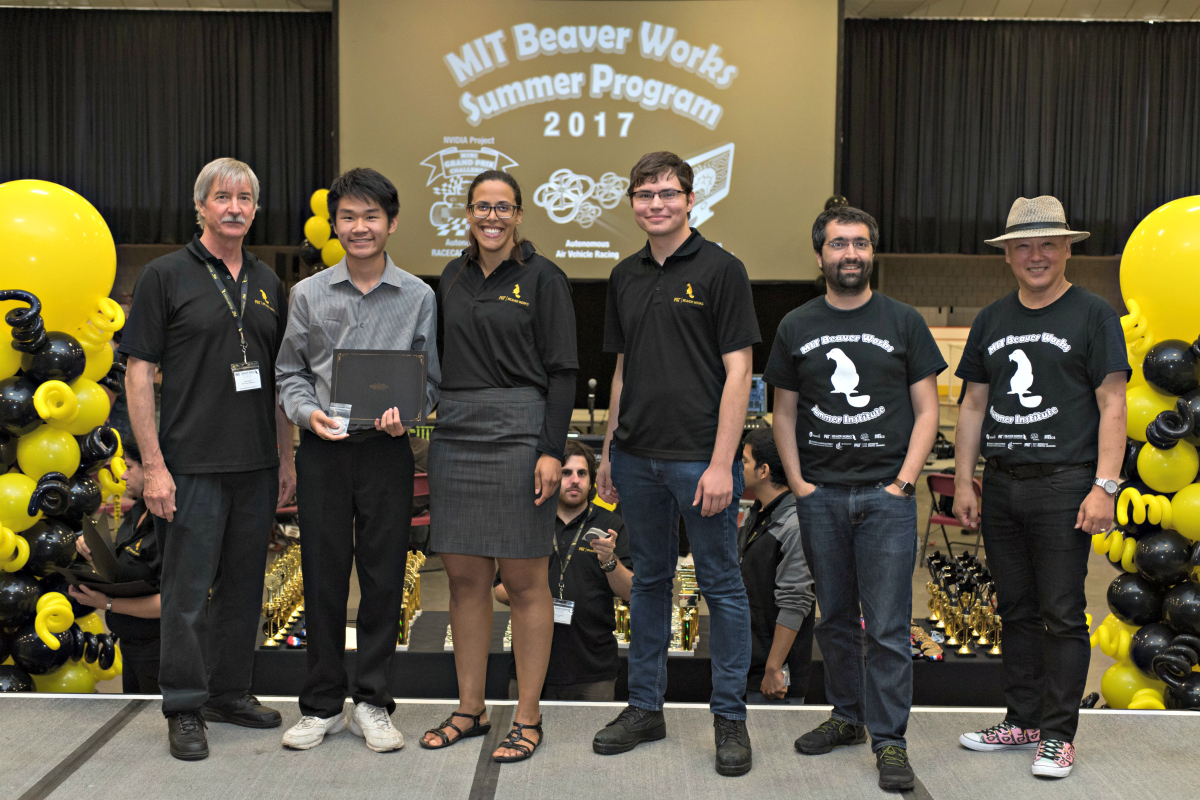Matthew Tang doesn’t have his driver’s license just yet. But that didn’t stop him from spending four weeks at the Massachusetts Institute of Technology this summer programming the kinds of autonomous technologies that might be in your next car.
Tang, a senior at Northwood High School in Irvine who turns 17 this month, teamed up with other aspiring engineers and computer scientists to help design a self-driving vehicle capable of navigating a complex racetrack at the 2017 MIT Beaver Works Summer Institute, which took place July 10 through Aug. 6.

“Computer science and engineering have always been my passion ever since I was little,” he told the OCDE Newsroom. “It was amazing to be able to work with this top-notch expensive hardware and MIT Beaver Works faculty and staff. Living in the dorms also gave me a taste of college life.”
Hosted by the MIT Lincoln Laboratory and Beaver Works Center, a research facility in Cambridge, the summer engineering program gave fewer than 100 young STEM superstars from across the nation a chance to work on projects with real-life applications. They learned the theoretical concepts during morning lectures and attended daily seminars featuring researchers from MIT, the MIT Lincoln Laboratory and NASA’s Jet Propulsion Laboratory.
Just getting into the program was a feat. As juniors, the students were required to take a prerequisite course and complete a rigorous application process that factored in their grades, test scores and extracurricular activities. Would-be participants additionally had to write three essays expressing their passion for computer science.
David Monge, an AP chemistry teacher at Northwood High School, assisted Tang with this application.
“I would have discussions with Matthew about how he wanted to pursue a career in computer science,” Monge said, “and the MIT program was a chance for a talented and driven student to take another step towards his goal.”
Once accepted, the students were separated into three groups: One cohort tackled the scaled-down autonomous racers, another built autonomous drones and the third developed virtual assistants similar to Apple’s Siri or Amazon’s Alexa.
Tang found himself in the automotive group, tasked with building a self-driving car roughly 18 inches long that could detect — and navigate around — barriers and potential hazards.
“It was a very rigorous program, challenging our math and programming skills,” he said. “But working in teams with other motivated kids that have a similar interest really helped us accomplish our goals.”
Each week, 13 teams competed in mini-challenges, which including drag racing and following a colored line. Then came the final test, a Grand Prix-style race on Aug. 6 that sent the smart vehicles through a serpentine course complete with an overpass, a tunnel and a faux yellow brick road surrounded by a blue “water hazard.”
Tang said he and his teammates worked with the programming language Python and a collection of libraries known as ROS, short for Robot Operating System. The cars were fitted with a laser scanner, a camera, an NVIDIA computer and other sensors. Teams used the laser scanners to determine distances to nearby objects and the camera to differentiate between the yellow road and the blue surroundings.

“The hardware we used and our implementations are simpler versions of what researchers are using to make autonomous vehicles for the industry,” he said.
The general idea was to make nearby objects exert a “repulsive force” to guide the car away from obstacles and walls. Meanwhile, a constant forward force was applied to keep the roadster moving through the track. But Tang says translating what you want a car to do into working code is a lot easier said than done. And there were additional hazards to overcome, like mesh walls that are difficult for laser scans to pick up.
In the culminating Grand Prix event, Tang and his squad finished second, besting a dozen other teams and building camaraderie with every curve. His team included two students from Massachusetts, one from New York and one from New Jersey.
“It was an exciting day of races and technology demonstrations, culminating in an awards ceremony,” said John Vivilecchia, program manager of the Beaver Works Summer Institute. “These students received a transformational experience that they will be sure to remember for many years to come.”
Tang certainly won’t forget. And he hopes to apply these kinds of skills in college and in his professional life. The latter may or may not involve cars, but will undoubtedly center on computer science or engineering, he said.
“It was a definitely unbeatable experience of a lifetime,” Tang said. “I hope more kids from Orange County can be part of the program next summer.”

